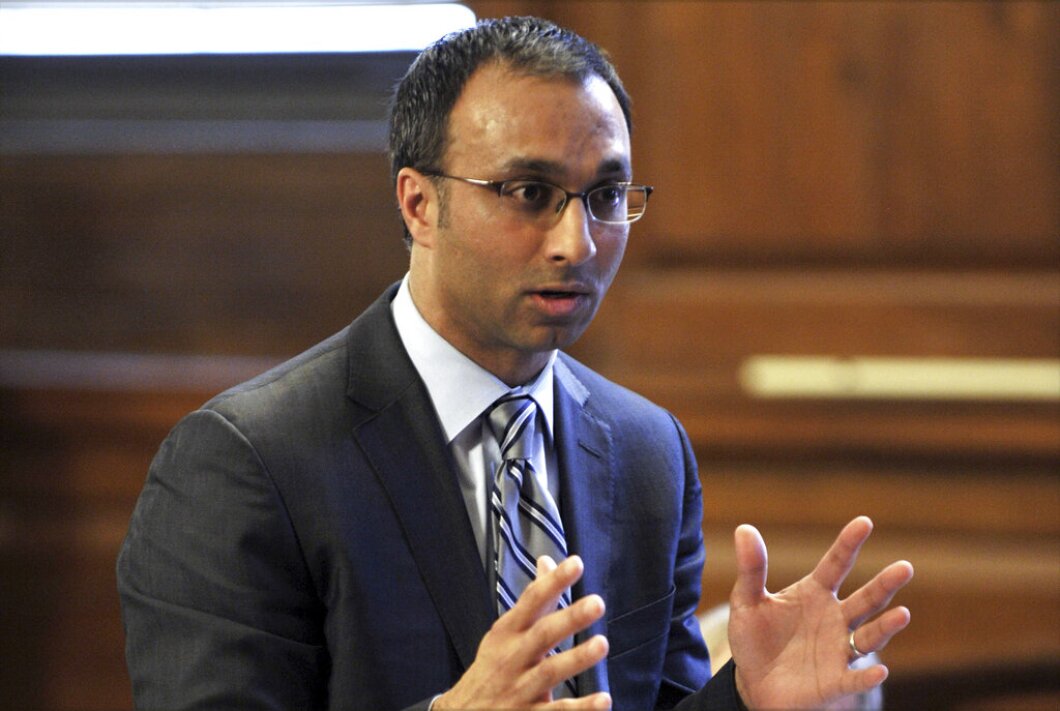
Google will face the Department of Justice‘s Antitrust Division in a trial that will determine whether the world’s most popular search engine truly has a monopoly on the industry.
The trial, which starts next week in D.C. federal court, could have a monumental effect on the internet and the broader modern economy — and, in particular, could determine whether Google will ever face a competitor that could dethrone it in search.
LAWMAKERS RETURN TO CAPITOL HILL WITH TICKING CLOCK AND HEFTY TO-DO LIST
The case will involve testimony from several of the most prominent tech industrialists, including Google CEO Sundar Pichai and Apple CEO Tim Cook. It has already led to the depositions of more than 150 people and produced more than five million documents over a three-year period. Now Google and the DOJ will face off in court for nine weeks over the question of whether Google has illegally created a monopoly.
The trial is taking place at the same time that the tech industry faces greater scrutiny from the government than ever before, with members of Congress of both parties wary of the influence over politics and society wielded by major corporations such as Meta, Apple, Amazon, and Google.
“Google is a Goliath,” Anat Alon-Beck, a professor of business law at Case Western Reserve University, told the Washington Examiner. “And to me, there really is no David. There’s no competition for Google in the United States or the world right now.”
The Trial
The DOJ’s suit was initially filed in partnership with 35 states in 2020, alleging that Google’s market dominance was hurting competitors. The lawsuit was filed by the Trump administration as part of the former president’s crackdown on Big Tech but has continued under Biden.
“Two decades ago, Google became the darling of Silicon Valley as a scrappy start-up with an innovative way to search the emerging internet,” the Justice Department said in its initial lawsuit. “That Google is long gone.”
The case will focus on the complaint that Google used $45 billion in agreements with mobile phone developers and web browsers to create illegal monopolies through the exclusion of competitors. It will also address whether Google’s advertising practices are anti-competitive due to a lack of transparency about pricing.
Initially, the suit included more charges, such as the claim that Google unfairly gave preference to its own products in search results. But the judge overseeing the trial, Amit Mehta, trimmed back the charges in August.
Mehta, who was appointed by Barack Obama, noted that Google is a search engine whose “brand name has become so ubiquitous that dictionaries recognize it as a verb.”
Google’s market share of search results is estimated to be between 90 and 94%. Google also made an estimated $224.47 billion in advertising revenue in 2022.

Mehta has not tipped his hand on matters involving technology companies or antitrust policy, making it hard to predict how he may rule on the case. The most relevant case was when he blocked a $3.5 billion Sysco deal for US Foods in 2015 on antitrust grounds after regulators opposed the deal, leading to both companies ending the deal.
Google’s arguments
Google argues that its deals to have Google search as the default on devices and browsers are because of competition and not despite it. For example, they point to remarks from Cook, who told Axios in 2018 that Google’s “search engine is the best,” and that’s why it was chosen as the default.
“People don’t use Google because they have to, they use it because they want to. It’s easy to switch your default search engine — we’re long past the era of dial-up internet and CD-ROMs,” Google President of Global Affairs Kent Walker told the Washington Examiner. Walker said that he was eager to prove the case in court.
Google also argues that it is in competition not just with other search engines, such as Bing and Yahoo, but also with other service providers, such as Amazon and Yelp. In effect, it argues that it has a multitude of competitors, including one of the biggest retail giants of the world. The DOJ argues the opposite and claims that the relevant competition is just the user search experience in services like Bing or Yahoo.
The trial will also focus on Google’s search advertising practices. The DOJ alleges it isn’t transparent enough, making it hard for competitors to provide comparative pricing.
Google has tried to get the head of the DOJ’s Antitrust Division, Jonathan Kanter, to recuse himself on the grounds that he has demonstrated bias. Kanter is part of a group of Biden-appointed leaders, including Federal Trade Commission Chairwoman Lina Khan, who have adopted a more aggressive approach to antitrust policy about technology companies. Kanter is an advocate of what has come to be known as “hipster antitrust” policy, which abandons the consumer welfare standard that guided U.S. antitrust policy for decades in favor of a much more skeptical approach that also considers other factors, such as corporate concentration and income inequality. He has also previously represented Yelp, which Google argues is a competitor.
The DOJ’s Antitrust Division declined to comment.

DOJ vs. Tech Industry
Of all of Google’s vast empire, its deals with making its search engine the default on other companies’ devices and web browsers may be the key to it being declared a monopoly, judging by the DOJ’s last high-profile antitrust case against a tech giant.
In 1998, the DOJ sued Microsoft after bundling its web browser, Internet Explorer, with its Windows 95 and Windows 98 operating systems. Software developers were conflicted at the time about which internet browsers were preferred and which ones were weaker. The DOJ alleged that Microsoft had abused its monopoly power and marketplace control by bundling to get an advantage over all the other browser developers. The specific design decision meant users could use the already-installed Explorer or take additional steps to install an alternative.
Microsoft argued that merging Explorer with its operating system resulted from innovation and that Internet Explorer and Microsoft 95 were the same product for many users. The DOJ countered that this was false because the company sold Internet Explorer separately to non-Microsoft users and included it in its operating system.
The judge overseeing the trial ruled that Microsoft was crushing competition through its monopolistic control as a predominant OS developer and that the company had to be broken up. That ruling was later overturned in 2001 after evidence revealed that the judge had spoken with the media mid-trial, an action considered a breach of the U.S. judiciary’s code of conduct and implied bias against Microsoft. The DOJ later reached a settlement with Microsoft to allow manufacturers to adopt non-Microsoft software to level the playing field.
Possible outcomes
In theory, Google could be broken up. That would be an outcome in line with the government’s antitrust action against America’s largest phone line provider a generation ago. A 1982 consent decree forced AT&T to relinquish control of Bell Operating Companies, the operation controlling most local telephone service in the United States. Bell was then forced to break itself up into seven regional companies, forcing them to compete.
A similar breakup may not be possible in the digital economy, though. “[The DOJ] want Big Tech companies to be accountable for violations of what they deem to be antitrust laws,” Alon-Beck said. “And there’s definitely an abuse of market power to me. I just don’t know what it is that they want to have happen.”
CLICK HERE TO READ MORE FROM THE WASHINGTON EXAMINER
Yet critics of Google see it as necessary for ensuring innovation and competition.
“If the government wins, we’ll see immense innovation and new entrants,” wrote Matt Stoller, director of research at the American Economic Liberties Project, a left-leaning organization that regularly advocates for breakups of Big Tech companies.





